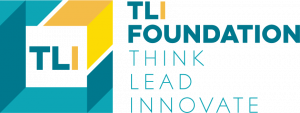Thought Leadership & Innovation Foundation Fellow Reviews AI Advances in Medicine and Healthcare Management
Advances in computational science present unique opportunities to accelerate medical science, personalize medicine and improve treatments and health equity.
Dr. Mozayeni states that, “While AIM tools are not ‘intelligent’ or ‘sentient’, their increased use as decision support tools within medicine will accelerate innovations that will help us improve patient outcomes and help us be better prepared for health crises like the COVID pandemic.”
The paper introduces key concepts and reviews their recent applications to help the reader appreciate how standards in medicine will evolve as healthcare incorporates this new generation of decision support tools. These innovations are beginning to disrupt and reconstruct healthcare underwriting, health care delivery, clinical trials, and their various regulatory frameworks. Especially exciting is the prospect of this technology’s near real-time iterative optimization cycles. This paper also discusses how these tools, if they had been deployed for the purpose, would have improved the COVID-19 pandemic response.
Medicine, like many other fields, is experiencing the implementation of software tools described as artificial ‘intelligence’ (AI) or, more precisely, machine learning (ML). The purpose of this introductory paper is to review and explain basic concepts and caveats within this nascent topic to less familiar readers. Some definitions, basic concepts, and examples of AI in medicine are reviewed with the goal of helping the reader understand how these tools may advance the process by which providers will improve standards of medical care. The topics discussed in the paper will be covered by TLI Fellows in more depth in subsequent papers.
At its core, AI is the application of a type of mathematical tool that has been enabled by computers and databases. Computers make it possible to develop these tools. These tools are based on a body of mathematics combining Bayesian probability modeling, rules, and neural networks (NN). This transformational technology is a cause for much optimism and concern. The change enabled by any innovative technology is naturally followed by a gradual appreciation of the impact, but optimism is gradually tempered by real experiences, often as opinions are revised and refined in a dialectic manner. It takes time to understand the capabilities of these AI and ML tools before medical professionals can feel safe and comfortable working with them in critical tasks.
Reed Hartley, Executive Director of TLI, provides an example. “TLI is dedicated to improving outcomes for under-served patient populations. Health equity begins with a representative database. Even when the AIM tools are built well, the database may be biased or incomplete. For example, in a skin lesion diagnosis tool, there was a systematic under-representation of darker skin types. In a systematic review, Wen et al. (2022) wrote, 'There was limited and variable reporting of characteristics and metadata among datasets, with substantial under-representation of darker skin types.' Thus, the application of such a tool would not support equitable health delivery not because the algorithm was incorrect, but because the database was incomplete."
In the process of an AI being supervised by human oversight, and the process of humans being supervised by an AI, both the AI and human experts will improve. This process will fundamentally change the way medical evidence is collected and classified. This evidence will also be personalized rather than epidemiological. Thus, patients will no longer receive treatments based on just one characteristic but will receive treatments that are suited to their genomics, proteomics, and preferences.
About TLI
Thought Leadership & Innovation Foundation (TLI) is a not-for-profit organization that works at the nexus of science, technology, and public health, innovating for superior prevention, treatment and outcomes for those facing life-altering medical diagnoses. TLI helps patients across the country and around the world find better healthcare outcomes. Visit www.thoughtfoundation.org and follow us on Twitter and LinkedIn.
Reed Hartley
Thought Leadership & Innovation Foundation
+1 703-473-9083
info@thoughtfoundation.org
Legal Disclaimer:
EIN Presswire provides this news content "as is" without warranty of any kind. We do not accept any responsibility or liability for the accuracy, content, images, videos, licenses, completeness, legality, or reliability of the information contained in this article. If you have any complaints or copyright issues related to this article, kindly contact the author above.

